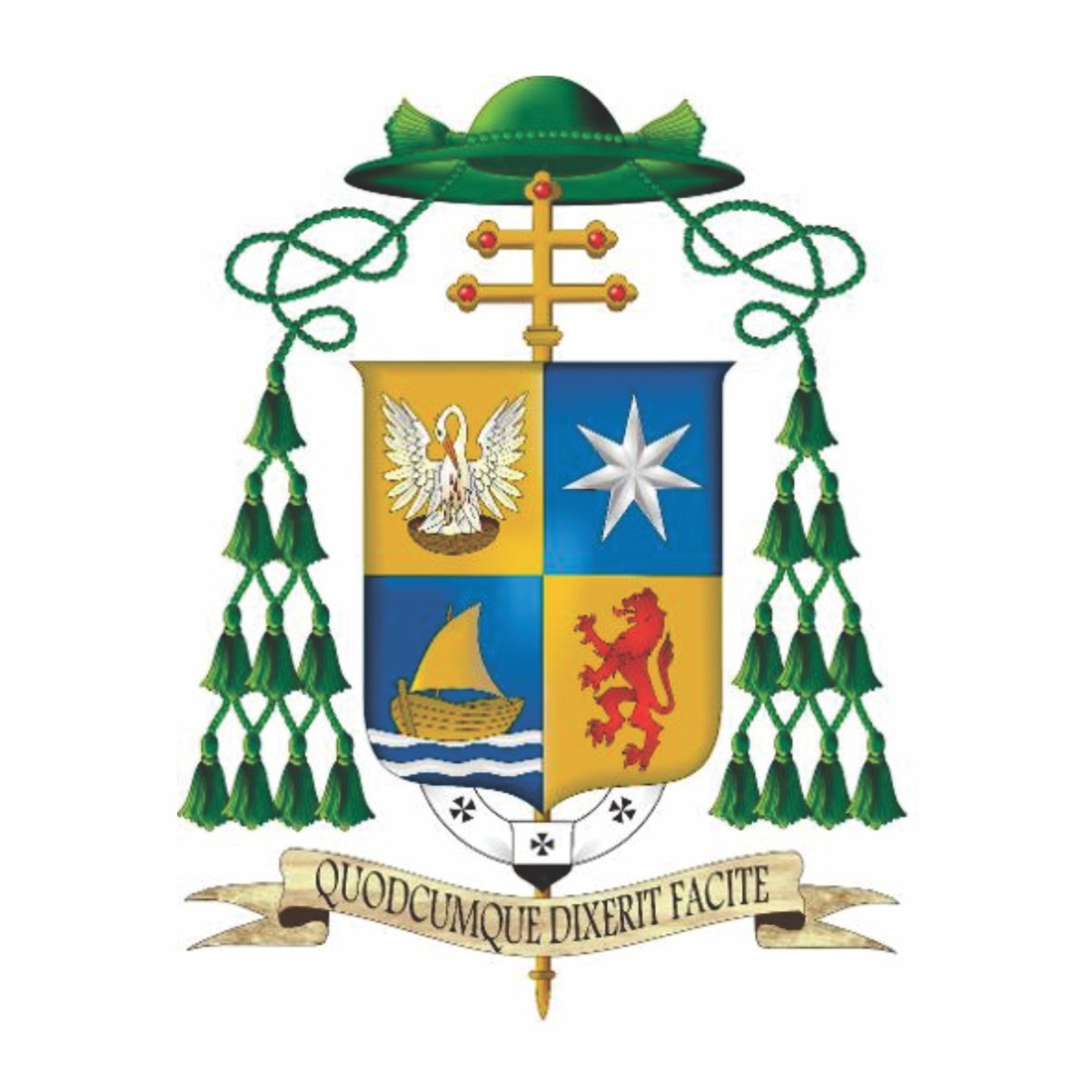
Archbishop Leo's Message for Mother's Day

Message for Mother’s Day 2024
His Grace Most Reverend Francis Leo
Metropolitan Archbishop of Toronto
12 May 2024
My Dear Friends,
Happy Mother’s Day to all the mothers here in the Archdiocese of Toronto. During the month of May we not only celebrate the Virgin Mother of God, Mary most Holy, our spiritual mother, we celebrate indeed all mothers and in them, the gift of maternity. While we certainly do not limit our acknowledgment and praise of mothers to merely a single day once a year, since we ought to do so in different and creative ways every day; nevertheless, it is important to set aside time to recognize all mothers in a special and prayerful way. I say “prayerful way” not as a pious platitude, but because the origin of Mother’s Day is steeped in prayer, rejoicing and recognition.
In many parts of the world, Mother’s Day was known as “Mothering Sunday” which took place on Laetare Sunday (the Fourth Sunday of Lent). On this day, it was customary for people to return to their “mother Church,” that is, the parish Church where they were baptized or the mother Church of the Diocese (the Cathedral). As part of their “pilgrimage” home people would likewise visit and celebrate their own mothers. Overall, the tenor of the day was celebratory, marked with a sense of gratitude for the gift of motherhood and true maternal love - love for Holy Mother Church, for Mary the Mother of God, and for all Mothers, living or dead. Today things have changed somewhat, but it might be interesting to plan a trip to your baptismal Church or St. Michael’s Cathedral Basilica here in the Archdiocese of Toronto as part of your Mother’s Day festivities.
We must never downplay or overlook the importance of motherhood. While many reduce the importance of motherhood to the one act of giving birth, I would suggest there is more, much more for us to consider and for which to be grateful. One of the commandments given on Mount Sinai was to honour our father and mother (Deut. 5:16). The Decalogue can be split into two sections, the first looking at our relationship with God and the second looking at our relationship with others.[1] The second section, dealing with human relationships begins with the fourth commandment, pointing to the fundamental segment of all human interaction—the family. To honour one’s mother and father is to recognize that we are not individuals merely co-existing with others, but rather we have a responsibility for others. We are in relationship with God and with others. We are members of a family, and families are the most basic unit of any and every society. The first three commandments recognize our primary relationship—our relationship with God; the remaining seven commandments focus on our secondary relationships—our relationship with others. Both our relationship with God and our neighbour are outward looking—a crucial remedy to an increasingly fragmented view of humanity that can be at times uncaring and anti-social. The fourth commandment to honour our mother and father colours and influences all other relationships and in many ways underpins our entire Catholic Social teaching.[2]
Within the context of our families we learn how to be “human,” how to live with others, care for others, and give of ourselves in a sacrificial way. The importance of the family cannot be overstated. The Second Vatican Council referred to the family as the “domestic Church,” (LG 11) the place where we first learn about God and His love for us. The interconnectedness of the family mirrors the divine life of the Holy Trinity, participating in the creative love of the Father, the sacrifice of the Son and love of the Holy Spirit.[3] Pope Francis describes this divine dynamic referring to the family as a “living icon,” writing, “the triune God is a communion of love, and the family is its living reflection.”[4] The image of the family as a “living icon” of the Trinity is profound because icons have traditionally been understood to have a transcendent quality, participating in the reality they depict. Thus, the family doesn’t just mirror or reflect the Trinity, but is called to participate in the very divine life of God. Further, the creator of an icon is not a painter, but a writer, with a specific theological goal—to draw people into the mystery being depicted, likewise the family is meant in similar fashion to draw people into the mystery of God (cf. Eph. 5:21-33).
In a General Audience on January 7th, 2015 Pope Francis said this of mothers:
Mothers are the strongest antidote to the spread of self-centred individualism. “Individual” means “what cannot be divided”. Mothers, instead, “divide” themselves, from the moment they bear a child… A society without mothers would be a dehumanized society, for mothers are always, even in the worst moments, witnesses of tenderness, dedication and moral strength. Mothers often pass on the deepest sense of religious practice: in a human being’s life, the value of faith is inscribed in the first prayers, the first acts of devotion that a child learns. It is a message that believing mothers are able to pass on without much explanation: these come later, but the seed of faith is those early precious moments.[5]
On this Mother’s Day I wish to extend my warmest best wishes and abundant blessing on all mothers. Thank you for everything you do for your families, the Church, this archdiocese and the world. My prayer for mothers today is that you continue to live in the grace of Our Lord, labouring in His vineyard, giving each day a piece of your heart to those around you, nurturing and protecting, and living the abundant life of authentic holiness, in imitation of the Mother of us all, Our Lady. Please know that you are deeply loved and greatly appreciated.
Sincerely Yours in Jesus with Mary,
Most Rev. Francis Leo
Metropolitan Archbishop of Toronto
[1] The Ten Commandments state what is required in the love of God and love of neighbor. the first three concern love of God, and the other seven love of neighbor. As charity comprises the two commandments to which the Lord related the whole Law and the prophets . . . so the Ten Commandments were themselves given on two tablets. Three were written on one tablet and seven on the other. (CCC 2067).
[4] Francis, Amoris Laetitia, n.11.
[5] Francis, General Audience, 7 January 2015. See also Amoris Laetitia, n.174.
